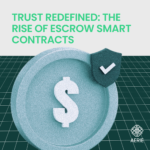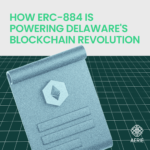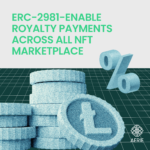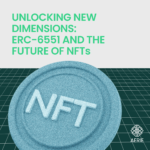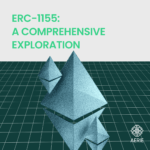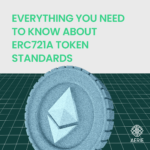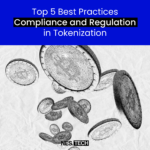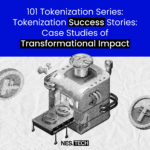Stories Behind NEST® – From Corporate Finance to Blockchain
In this exciting episode of the Raion podcast, Laurence sits down with Patricia Auer, a seasoned expert in the field of blockchain and Web3, and the Chief Operating Officer of NEST®. As the use of blockchain continues to grow and change the business landscape, Patricia offers valuable insights and perspectives. Join us as we delve into the world of blockchain, VCs, gaming, metaverse, and NEST®.
And if you want to watch the conversation, be sure to check it out here!
From Corporate Finance to Blockchain
“With all the stress at work, I really needed an outlet that wasn’t going out and getting drunk and then being hung over, and having the fear the next day from the hangover.”
Patricia: I started as a lawyer in investment banking. I was a derivatives lawyer and so I went through the financial crash in 09 in London. To me, it is very comparable to what happened with FTX. When FTX happened, I compared it to Lehman’s. That was a very pivotal moment in my career in investment banking.
I ended up running the Asia Pacific region within the legal department for the banks. I then decided that I was not happy with my corporate career. I was constantly stressed. I was working 24/7.
Then, I ran away with the circus quite literally. I’m an aerialist on the side, I ran away and performed.
Laurence: I thought that was a joke! You actually ran away with the circus?
Patricia: I actually ran away with the circus. It was the most wonderful experience. When I came back from that I fell into crypto.
Laurence: Okay, in terms of running away with the circus, you can’t be like “yeah I ran away with the circus”. There’s a story there! Are you a gymnast?
Patricia: Investment Banking is very geared towards going out drinking, not really into fitness. At a certain point in my life with all the stress at work running the Asia Pacific region, all the regulatory matters that I had to deal with, I really needed an outlet that wasn’t going out and getting drunk and then being hung over, and having the fear the next day from the hangover.
I got into the circus at the age of 28 and really got obsessed with it. I ended up eating, sleeping, and breathing it outside of work. I would get up super early at 4 am, and start training anywhere from five to eight hours. I slept very little at this point in my life. I would go to Circus schools, mainly in America, and I would do a two-week intensive.
There was one Christmas I went to San Francisco, I was at the Mongolian contortion Center because I did contortion. I met, who now is one of my best friends in life, and for about two years she kept saying to me “if you’re unhappy why don’t you just leave your job?”
I was like, “well yeah sure, just quit my job! What am I going to do in life?!”
She kept saying to me, “Come to Peru. You’ll be fine.”
“One day I just woke up and I’d had enough of my job and I resigned, booked a flight to Peru, and she’d helped me get a part in the circus because she’s a resident aerialist. And yeah, off I went!”
It was phenomenal swinging from the ceiling and playing around. It’s really just like being a big kid again. I compare it to crypto because I feel like again, I get to live this very fun life. I’m still working 24/7, but it’s fun and it’s playful and it’s creative.
Laurence: You’ve got a very interesting past, you’ve got a legal background, you obviously got a creative side, and you’ve got a fun side as well which is necessary for this area. You’ve also worked in the VC world?
Patricia: Yes. I was the director of a VC called Brink which is based in Hong Kong and they have a partnership with Animoca Brands and a few other big players. I ran their accelerator, so I put together the program, sourced the projects, did all the due diligence, and then also mentored and advised a lot of these projects. I still work quite closely with them. I still refer projects that I think are good.
It fits into my background because I worked at Barclays Capital in London. I covered M&A, funds, derivatives… specialized in derivatives but again there was a lot of crossover into that.
I got into the blockchain space in 2018 and I became part of a founding team, but I really had no idea. My first project was a digital asset exchange, it was funded, we had a tech team, didn’t go so well.
The second company, again, part of the management team, think Instagram with a native token. We were probably one of the first social media companies within the space. It went very well, we exited to a VC, and then from that, I started scaling my consultancy and then moved into the VC space.
The technical side is something that is a learning journey for me, and something that I work on every single day. But finance-related matters, legal-related matters, incorporation, jurisdictional perspectives, that’s kind of my bag, I can do that with my eyes closed.
Being at a VC, especially running the accelerator, was a great way to build upon my knowledge because I get to see so many different projects and so many different verticals without fully immersing myself into that.
“There’s the standard things that you need to hit, your pitch deck and things, but then there’s also a lot of soft skills which I think a lot of people don’t think about.”
Laurence: One question that we get asked without fail is, “How do we raise money and when should we be raising money?” I think it’s different for each individual company but I tell them to focus on sales above anything else, and get to a point where you’re actually generating revenue, and if you’re generating Revenue, the VCs will find you.
Patricia: I was in Miami two months ago at a conference called DCENTRAL and I had a speaker slot and then I had a workshop. The workshop was actually fundraising tips things that I’d learned. Because for each and every company I’ve actually raised, there’s the standard things that you need to hit, your pitch deck and things, but then there’s also a lot of soft skills which I think a lot of people don’t think about.
But even when it comes to VC analysis, I often tell people to use a sales process. Generate your funnel, and really start digging data on the various VCs, at what stage they invest… you have some VCs that invest at Angel round, you have a lot of them that invest in the seed stage, and then the bigger the larger ones will invest post-seed. So it’s really about creating that list for yourself, starting to connect with VCs, building relationships, or finding someone who has raised that you can ask to mentor or advise your project and start introducing you to these VCs. But especially within blockchain, there are quite a lot of VCs that are willing to fund from the Angel and Seed stage.
**********
That brings us to the end of Part 1. If you’re ready for more, click this link to check out Part 2!

